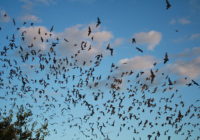Exploring the epigenetic dynamics of early plant development

Three new articles published in Genome Biology explain the various epigenetic dynamics occurring in the earliest stages of plant development.

Three new articles published in Genome Biology explain the various epigenetic dynamics occurring in the earliest stages of plant development.

Despite their importance in West Africa, yams have little recognition worldwide and are often confused with the completely unrelated sweet potato. Termed an “orphan crop” because of this restricted recognition, research into improving the crop has so far been limited. But now, new research published in BMC Biology reports the whole genome sequence of Guinea yam, setting the stage for genomics-assisted improvement to the crop.

A recent study published in the journal Cell Death & Disease found that autophagy—a form of cell destruction—is essential for hearing in mouse models. Autophagy is a normal process by which the body deals with damaged or unnecessary cell components, but this study gives us further insight into potential treatment of hearing loss.

Why do bats live so much longer than other small, high energy mammals? I recently attended the Society for Molecular Biology and Evolution conference where I not only had the opportunity to witness a large colony of bats leave their roosting site to go about their nightly feeding, but also learned a lot about the research being done to investigate their fascinating and unexpected longevity.

A new study, published in Evolution: Education & Outreach, finds that “understanding of the nature of science” was the single most important factor associated with acceptance of evolution, more so than any measure of religious belief.

The sequencing of the canine genome along with next generation sequencing technologies like whole exome sequencing have facilitated quicker, easier and more efficient identification of genes and mutations that can cause diseases in dogs. In a study published in Skeletal Muscle researchers have used these technologies to study a form of Limb-girdle muscular dystrophy (muscle wasting and weakness in shoulder and hip muscles) in Boston terriers. Here to tell us about the research and what this means for the breed is lead author of the study Melissa L. Cox.